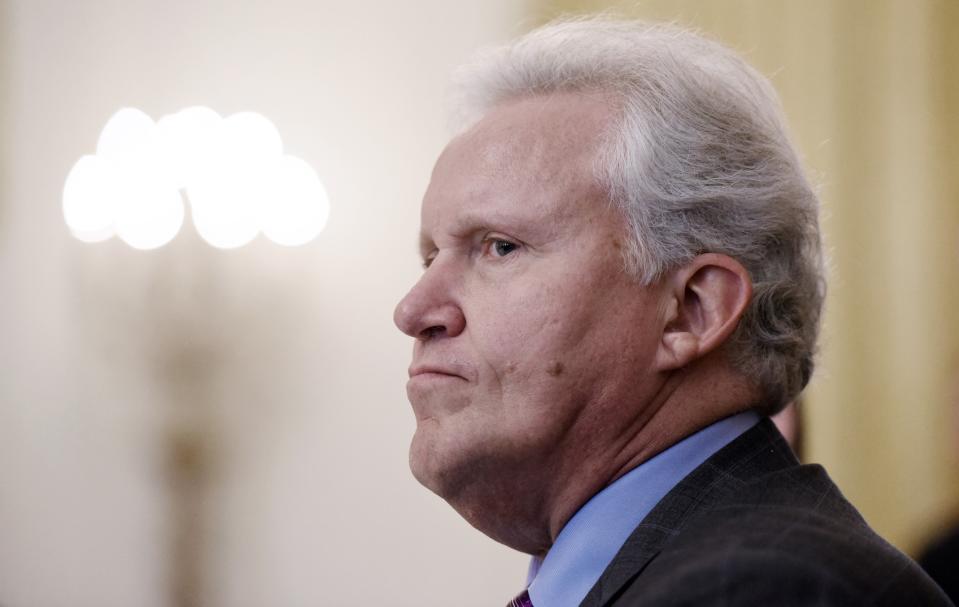GE's Immelt: Fear-mongering about robots replacing humans is 'B.S.'

GE (GE) CEO Jeffrey Immelt believes that fears surrounding the rise of robots replacing human workers are misguided.
“We’ve all been given this narrative about the dangers of technology. ‘If we come back to this room in 15 years, it’s all going to be robots,’” Immelt said at a recent Economic Club of New York event. “I think it’s such B.S.”
In Immelt’s eyes, technology won’t be replacing humans to get the same amount of work done in the same amount of time. Rather, he emphasized how technology helps to increase productivity and in turn boost wages. Work that could take days may eventually be done in hours or minutes.
He used a field services engineer working on a gas turbine in Texas as an example. By using technology such as virtual reality, that worker can obtain an immense amount of data and analytics right in the field. He added that employee could become worth $100,000 per year instead of $60,000 because everything can be fixed the first time correctly.
“Our vision is a digitized workforce that’s actually more valuable, not of replacing a million people with robots,” Immelt said. “I think we’re advocating for things that are going to make the U.S. more productive again because that really does support higher wages.”
Immelt’s views on technology enhancing the economy for humans are in line with others making similar claims, including a recent paper from the Richmond Fed that argued how self-driving trucks could in turn create more jobs and a 2015 IMF paper that explained how ATMs created more bank tellers.
How we get there
Immelt noted that two issues need addressing to bridge the gap between workers and available jobs.
“One is we have to continue to upgrade the skills of the workforce,” he said, pointing out that big companies like GE can afford to invest in apprenticeship and training programs.
“But the fundamental training that, let’s say, somebody that’s going to be taking a manufacturing job, a trade job, or service job, whether it’s high school or community college isn’t where it needs to be,” he said.
The second issue is investing in infrastructure.
“Let’s face it. We’ve been in an investment recession in the country for 15, 20 years,” Immelt said. “So the systems are old, the structures are old, the infrastructure is old. And so, if you put together meager education and bad investment, you get no productivity, and that’s where we are right now.”
Training and infrastructure are essential to increasing productivity, he argued.
“Productivity has flatlined. If we can get us productivity back up to 2 or 3%, that’s higher wages. That’s economic growth.”
All of this ties back to why so many people are into tax reform, he noted.
“Our economy is growing as fast as it can when the consumer is the only person pulling the wagon. So, if the consumer is the only person pulling the wagon that’s 1.5% GDP growth. If you can start getting cap-ex back in the system that’s a 3% GDP growth.”
Immelt, 61, will step down as CEO of GE in August after 16 years at the helm.
Julia La Roche is a finance reporter at Yahoo Finance. Follow her on Twitter.

